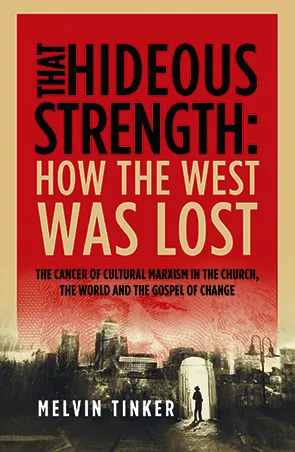THAT HIDEOUS STRENGTH HOW THE WEST WAS LOST:
The Cancer of Cultural Marxism in the Church,
the World and the Gospel of Change
By Melvin Tinker
Evangelical Press. 127 pages. £6.99
ISBN 978 1 783 972 401
Melvin Tinker’s latest book takes as its two starting points C. S. Lewis’ science-fiction tale That Hideous Strength and the biblical account of the Tower of Babel in Genesis 11. These act as lenses through which to make sense of the cultural transformations we have seen around us in the West.
Having introduced these two controlling narratives, Tinker brings us to the main focus of the book: cultural Marxism – a little-understood term that makes the subtitle sound rather sensationalist, but he does a good job of outlining the ways in which this movement has succeeded in transforming Western society in less than a century.







